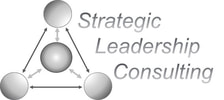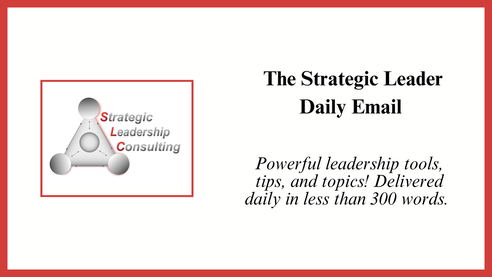|
Colleagues,
This morning’s email was actually a draft I forgot to finish (process breakdown on my part). There were three main points about transforming your leadership that I never got to:
Whether you want to transform your leadership or just polish the edges, these points are still relevant, and you can probably predict my three questions for you to reflect on this Friday:
Is the last question the most difficult? Hmmm… Do good and be well, Frederick
0 Comments
Colleagues,
As we close out summer on this Friday, it is a great time to reflect. Think about the types of messages you’ve gotten from me for however long you’ve been a part of this journey. For the most part, I try and provide small tidbits that can provide immediate value. It is an incremental approach. However, at the point that you truly become a strategic leader, you will have transformed your leadership. A transformation means that you have fundamentally become a different kind of leader. I think we have this idea that transformations are magical events that happen all at once, like a light switch flipping on, but this isn’t usually true. Transformation happens one small step at a time, just like any meaningful change. In the late 1990’s Jack Mezirow and others actually developed a theory about the process by which people experience transformative change, a theory I fully subscribe to. For leaders, my interpretation goes something like this:
If you go back to the series of posts on the Cube of Development, you will notice some connections. Do good and be well, Frederick Colleagues,
A couple weeks ago I shared a cartoon that my mom had sent to me in this post. Later, I was talking with her about how she chose what comics to send me and one of things she said made me think about new leaders. Mom said, “sometimes I find a cartoon that’s funny, but it is part of a story, and I don’t think you would see the humor in it without knowing the full story.” Think about that for a minute. Something that is funny in one context won’t be funny outside of that context. This is true for organizations and people’s actions within them as well. Imagine becoming the leader for an organization you’ve never worked for before. It’s like stepping into someone else’s story. The organizational history is the story of all the people that are working there. Like the comic strips, many of the things we encounter in the organization may not make sense if we have not been a part of the story all along. If we begin to change the narrative, without understanding what came before, we risk creating a new story that makes no sense to the people who have been writing the old one. Before you begin to change a story, try and learn about every chapter that came before. Do good and be well, Frederick Colleagues,
Are you facing any uncertainty these days? That’s what I thought. In times of change and unpredictability, strategic leaders focus on what’s essential. Let’s take teaching as an example. Teachers fundamentally do four things:
Each of these things is complex but at a time when we aren’t sure where the next class will take place (in a room, on a computer), we need to focus on what’s essential in each of those things. The same is true for nursing, for sales, manufacturing and any other discipline. We need to identify the essentials of our trade and focus on executing them. During high turbulence, it is the essential practices that will see us through. Do good and be well, Frederick |
Categories
All
Archives
July 2024
|


 RSS Feed
RSS Feed